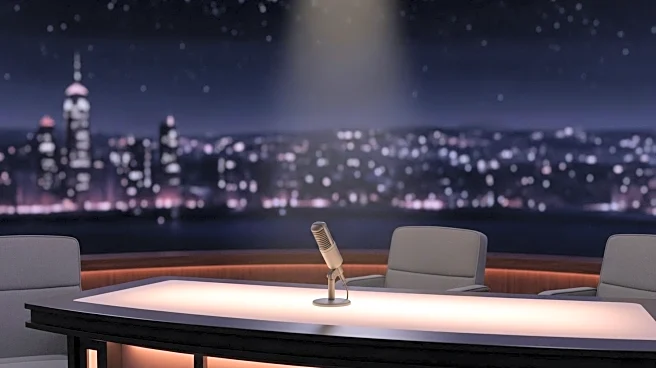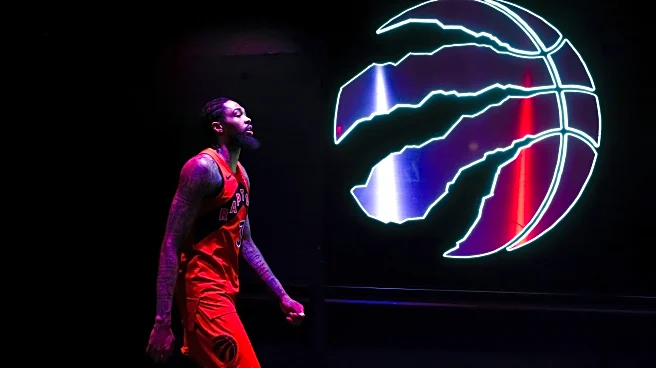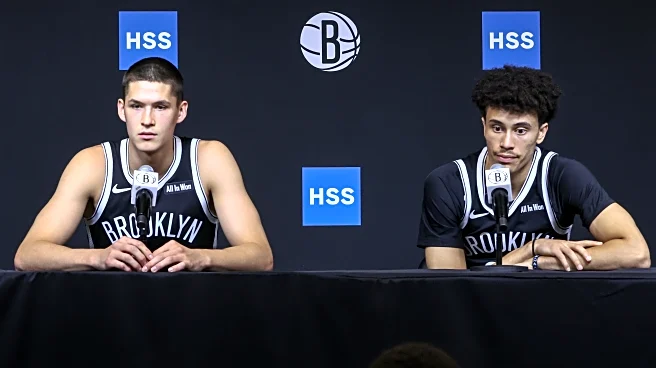What's Happening?
Jimmy Kimmel returned to late-night television after a suspension by ABC due to comments made about the killing of conservative activist Charlie Kirk. During his comeback show, Kimmel addressed the controversy directly, expressing regret for any perceived insensitivity and emphasizing that it was never his intention to make light of the situation. The show featured a mix of humor and serious commentary, including a direct confrontation of President Trump, who had celebrated Kimmel's suspension. Kimmel received support from fellow late-night hosts and various public figures, highlighting a bipartisan spirit in defense of free speech.
Why It's Important?
Kimmel's return underscores the ongoing tensions between media figures and political entities, particularly in the context of free speech and censorship. The incident highlights the challenges faced by entertainers in navigating politically charged topics while maintaining their comedic voice. The support from diverse political figures suggests a broader concern for preserving free speech rights, which could influence public discourse and media practices. The situation also reflects the polarized environment in U.S. politics, where media personalities often become focal points in larger cultural and political debates.
What's Next?
The aftermath of Kimmel's return may involve continued discussions about the role of comedy in political commentary and the boundaries of free speech. ABC and its affiliates may face pressure to reassess their policies regarding controversial content. Additionally, Kimmel's show could experience shifts in viewership dynamics, as audiences react to his handling of the situation. The broader media landscape may see increased scrutiny of how political figures influence entertainment and news programming.
Beyond the Headlines
The incident raises questions about the ethical responsibilities of comedians and media outlets in addressing sensitive topics. It also highlights the cultural impact of late-night television as a platform for political discourse. The support Kimmel received from various figures suggests a potential shift towards more unified defense of free speech across political lines, which could have long-term implications for media freedom and public dialogue.










